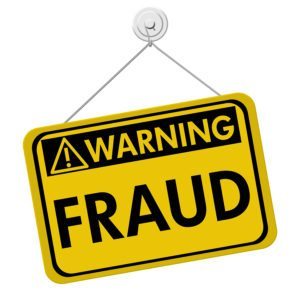Are Veterans More Likely to Be Scammed?
A study conducted by the AARP Fraud Watch Network has revealed that military veterans are two times more likely to be the victims of fraud than people who are not veterans. That’s because they are not only victims of the scams non-veterans are, but there’s a whole crop of scams out there that specifically target veteran benefits, charities, and other aspects of military life.

Caregiver Drexel Hill PA – Are Veterans More Likely to Be Scammed?
As a family caregiver, one of the things you may do for your aging relative is to watch for signs of fraud or identity theft, so knowing more might make you better able to do so.
Survey Details
AARP conducted the survey in cooperation with the United States Postal Inspection Service. The joint effort is aimed at protecting veterans from those scams that are aimed at veterans. They’re calling the project Operation Protect Veterans. As part of the effort, the two organizations will raise awareness for veterans and their families through the use of ads, emails, social media, and print materials.
To gain information, the study used a survey. Survey responses revealed:
- 16 percent of veteran respondents had been scammed out of money in the last five years while only 8 percent of nonveterans had.
- 25 percent of veterans reported receiving 10 or more suspect phone calls on a weekly basis.
- 78 percent of veterans indicated they had been pitched a scam that had something to do with their service in the military.
Common Scams Aimed at Veterans
There are several scams out there that criminals hope veterans will fall victim to. Some of those scams are:
- Cold calls from organizations that say they will help a veteran with a VA pension claim. They may charge money to help and ask for credit card information over the phone.
- Organizations that offer to represent veterans for VA claims and charge a great deal of money up front. They may also ask for a portion of the claim as a fee.
- Phishing scams that call veterans saying they need to update their military file. The caller claims to be from the VA and asks for personal information, like social security number or banking information.
- Callers who say they are from a charity raising money for veterans. They might use a name similar to well-known organizations in hopes of tricking the call recipient.
Family caregivers of veterans need to be extra vigilant to help their aging relatives from falling victim to scams. Talk to the older adult about the types of scams that are out there and remind them not to give personal information over the phone. For long-distance family caregivers, a home care provider can assist with protecting the veteran from scams. They can field phone calls, review mail with the veteran, and offer advice on communications they receive.
Sources: https://www.aarp.org/money/scams-fraud/info-2017/veterans-scam-protection-fd.html?intcmp=AE-HP-FLXSLDR-SLIDE2-RL1
https://www.forbes.com/sites/johnwasik/2017/11/10/how-vets-can-avoid-scams-that-target-them/#6589fd217b89
https://www.benefits.va.gov/pension/pensionpoachingpostcard.pdf
https://www.woundedwarriorproject.org/media/2603/scams-that-target-veterans.pdf
If you or an aging loved one are considering Caregiver Services in Drexel Hill PA, please contact the caring staff at True Direct Home Health Care today.
- How Home Health Providers Offer Education Amidst Physical Health Changes - March 5, 2024
- Spring Activities for Seniors - February 21, 2024
- How to Help an Older Loved One with Cataracts? - February 6, 2024
